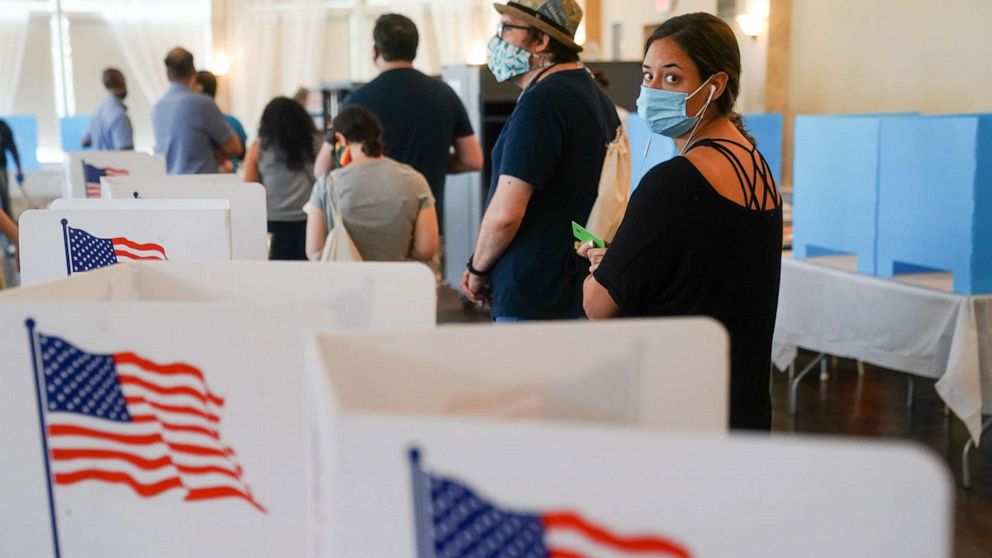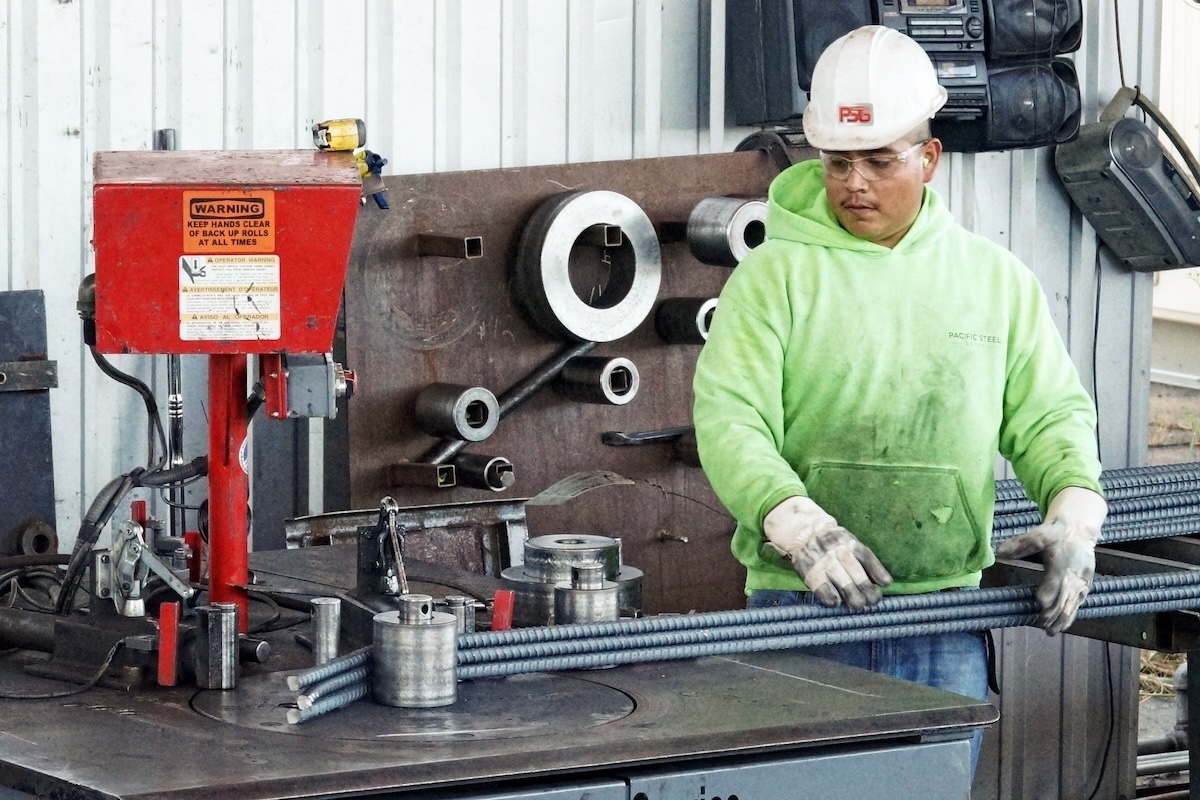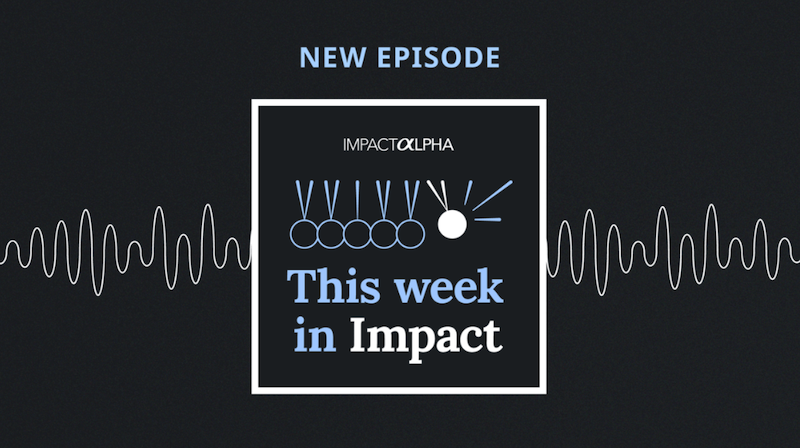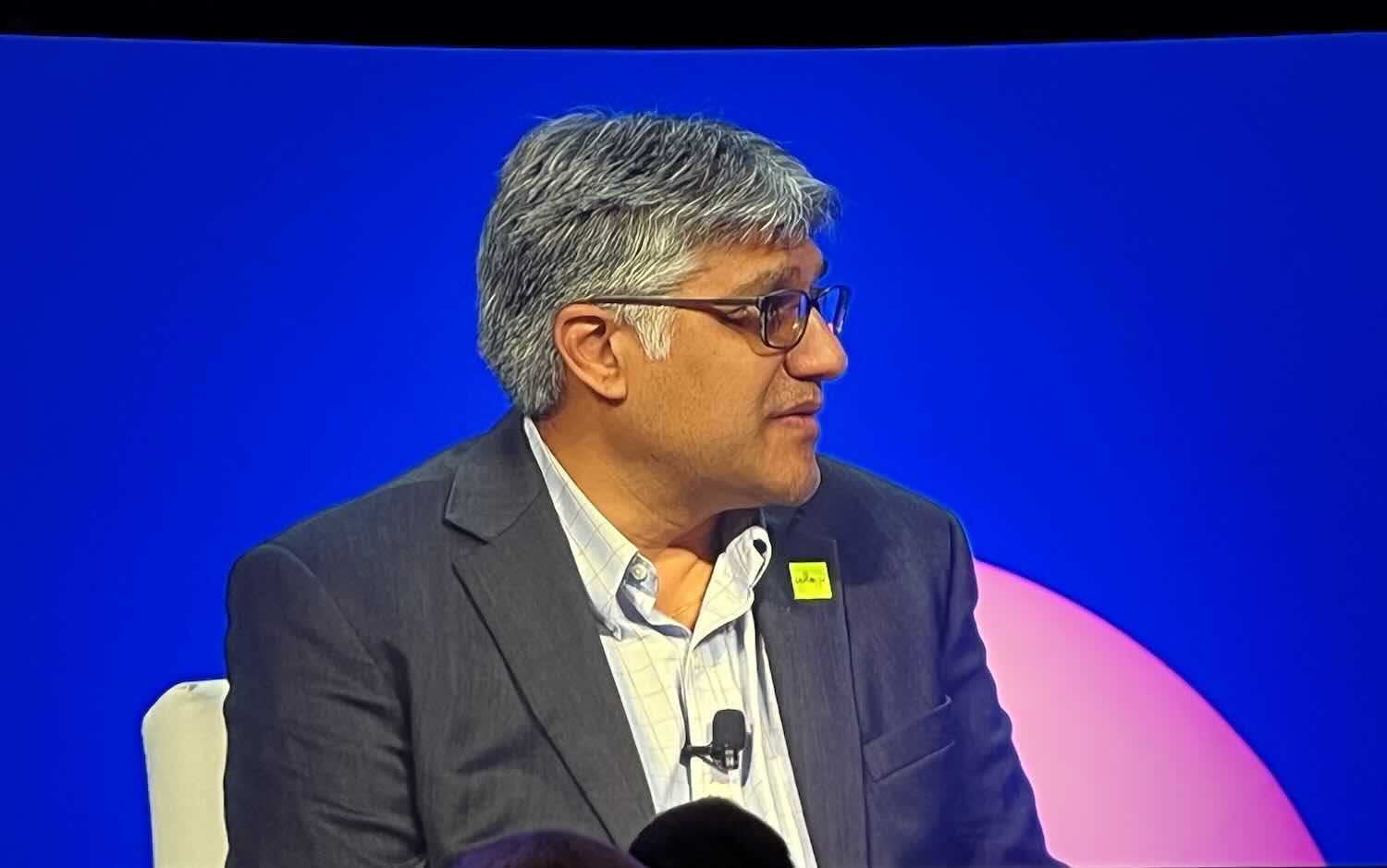It’s long past time to get political.
Impact investing, with appeal on both the left and the right, has generally steered clear of partisanship and elections. But the impact of the approaching U.S. election arguably dwarfs the impact of all impact investments.
The consensus on ImpactAlpha’s most recent Agents of Impact Call: Political disengagement is a luxury impact investors can no longer afford.
Listen to Agents of Impact Call No. 21: Election Impact
Political disengagement “is an absolute symptom of comfort and privilege and it’s unacceptable because, at the end of the day, people are dying because of the policies that are put in place,” said Antony Bugg-Levine of the Nonprofit Finance Fund. “For someone to say ‘I’m not gonna engage on that front’ is really saying that I don’t see my own self or my family in those struggles.”
ImpactAlpha convened The Call to open a discussion that is rare in a field that sometimes pretends that “market-based solutions” can be divorced from government policy, and policy from politics.
As ImpactAlpha’s editor, I stepped out of my own journalistic comfort zone with a recent column that argued that at stake in the election is the enabling environment for effectively all of the investments impact investors are making, in the U.S. and around the world, and called on impact investors “to step up to ensure the decisive defeat of Donald Trump.”
Investors find common cause in pushing back against Trump’s anti-ESG rules
Private investors have fewer barriers to political participation than nonprofit organizations and philanthropic foundations.
“We’ve really tried to lean in electorally because as an asset allocator, as a family office, we can,” said Liesel Pritzker Simmons, co-founder of the Blue Haven Initiative (see, and listen to the podcast, “Wealthy families have the flexibility to drive impact across their portfolios”). “And so we’re looking up and down the ticket, at DA races and attorneys general and all kinds of different ways – judges – all sorts of different ways that you can put people in power who are going to make better decisions for their community.”
Near the beginning of the coronavirus pandemic, Pritzker Simmons unleashed a storm of tweets arguing that impact investors needed to step up policy advocacy and support for civic engagement, along with their capital commitments. “Actually, this is a government problem,” she said. The shortfall in the U.S. response was not a shortage of startups creating test kits. “The problem is with our government’s response. I’ll just leave it there.”
Last year, Pritzker Simmons and her husband, Ian Simmons, organized a letter from nearly two-dozen billionaires asking all presidential candidates to raise taxes on the richest of the rich. “At Blue Haven we see our civic engagement and our political work as being sort of fundamental to how we engage as investors,” she said “Because we want fair rules. We want communities to benefit. We want a tax system that works better for everyone.”
Trevor Neilson, founder of i(x) investments, made a full-throated call for impact investors to get off the sidelines. “Everything is at stake,” he said. “I spent almost all my time working on climate. If Donald Trump is reelected on climate, we’re doomed. There, there is no hope on climate if Donald Trump is reelected.”
“I love the ImpactAlpha community and I love the impact investing community but it also frustrates me, because we’re very comfortable in these theoretical discussions about the way the world should be,” Neilson said. ‘And, honestly, Trump and the Trumpsters hope that we stay in these theoretical conversations. They hope that we are not plotting and planning in every possible way to get rid of a madman.”
Impact reckoning
Indeed, if disdain for the incumbent was no surprise, the depth of the critique of impact investing itself was. Bugg-Levine called impact investing “plutocratic and technocratic,” with investors making decisions without the lived experience of needing government services. “And people are pissed off and sick of it,” he said.
Added the Beeck Center’s Sonal Shah, “We’ve been talking about impact investing for the last, God knows how many years and we’re like ‘We’re gonna do good by people.’ And you know what people are resoundingly saying? ‘You’re not doing good. You’re not helping us.’”
Shah, recently back from a leave to serve as national policy director for former Mayor Pete Buttigieg’s presidential campaign, said both philanthropic donors and impact investors have to be willing to bear more risk. “Take the f—ing risk,” she said. “If you really care about Black entrepreneurs, invest in Black entrepreneurs. Don’t manage it and say, ‘Well, they haven’t been proven yet and and nobody’s invested in them and therefore we don’t know.’ You want to take a risk, then take the damn risk.”
And if there are risks in choosing political sides, there also are risks in staying on the sidelines. Mission Investors Exchange’s Monique Aiken, a contributing editor at ImpactAlpha, opened The Call with an excerpt from a poem by Audre Lorde:
When we speak we are afraid
our words will not be heard
nor welcomed
but when we are silent
we are still afraid
So it is better to speak
“For me, this Call and the reason to have it, is to create a space for discussion on this particular topic,” Aiken said. “Everyone keeps saying we’re in unprecedented times, so it calls for actions that might be unprecedented. If we perhaps wouldn’t have done this before, it’s time to do it now because of what’s at stake for impact investors and everyone else.”












